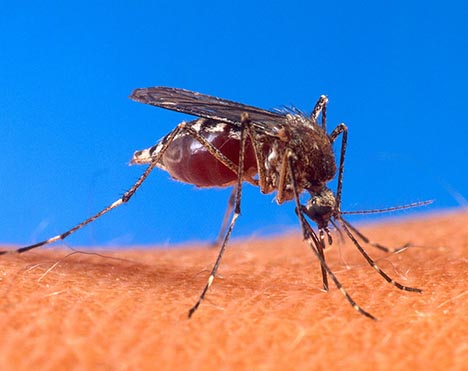
As a resident of the world’s hottest city, Bangkok,Thailand, I have had more than my fair share of mosquito bites. In fact, mosquitoes seem to love me and will practically eat me alive, while no one else at the table gets a single bite.
If you, like me, are beloved by mosquitoes, here are some great tips for how to easily treat a mosquito bite – the natural way. Mosquito bites tend to be itchy and, if scratched too much, can even get infected but, it is still possible to treat them naturally, without the use of chemicals.
So, the next time you get a nasty mosquito bite, treat it like I do and you will find itchy, infected mosquito bites (and the scars and illnesses that come with them) are soon a thing of the past.
Prevention is Better than a Cure – The best way to treat a mosquito bite naturally is not to get one in the first place. If you plan on going out in wooded areas, in hot and humid places at night, or even just sitting in your backyard as the sun goes down, slather on some mosquito repellent – but not the stuff loaded with chemicals.
In fact, I don’t believe in using harsh chemicals on my body at all as they get absorbed through your skin. So I avoid the chemical stuff available at local drug stores and use a natural mosquito repellent or one of the many repellents nature gave us.
Peppermint Oil, clove oil, cinnamon oil and garlic oil work well (although they’re a bit smelly).
In Thailand, Thais use a natural mosquito repellent made from lemongrass oil, a traditional Thai remedy, and that’s worked well for me. It smells nice too. Whatever you try, go to a local health food store and either buy the oils or a natural insect repellent and stay away from anything with toxic chemicals on the labels.
The only thing you must remember, if you use natural oils as a mosquito repellent, you’ll need to reapply them often (every 90 minutes or so) or the mosquitoes will just come back.
You can also burn lemongrass candles outside, which are wonderful to keep mosquitoes away and they make your yard smell lovely too.

How To Treat a Mosquito Bite Naturally – Rather than try a chemical treatment for a mosquito bite, go the natural way instead. I’ve found, when I use a natural remedy, my mosquito bites itch less, heal faster and they don’t look as unsightly either.
1. Baking soda is a wonderful natural treatment for mosquito bites. Just mix a couple of tablespoons in a bowl with a few teaspoons of water, until you’ve got a thin paste. Then dab the paste on all of your bites and leave it to dry. It will quickly take away the itching, prevent infection and only needs reapplication when it’s wearing off.
2. Use a natural unscented soap that doesn’t include harsh chemicals. Wet the bar of soap and rub it on the mosquito bites. You’ll notice the itching stops almost immediately and, because the soap keeps the area clean, your bites won’t become infected.
3. Natural toothpaste works wonders on mosquito bites. When in the US, I use ‘Toms of Maine’ toothpaste as just a quick dap of that on each bite immediately takes away the itching. It was great for my teeth too.
4. Here in Thailand, the land of the banana, many Thais use the inside of a banana peel to take away the itch. You just rub the peel on each bite and reapply hourly.
For me, this is the most soothing natural mosquito bite treatment and, even though it’s a bit sticky, I’ve had the best results with this.
The main thing with mosquito bites, if you get one and don’t want to get an infection or want to get rid of the itch quickly, remember these quick points:
1. Don’t scratch the bites. I know it’s hard to resist but, the more you scratch the more they’ll itch and the longer the itching will last. Plus, you’ll end up with scars if you keep breaking open the wound with your nails.
2. Keep the bites clean but take cool showers as a hot shower will inflame the bites more and make them itchier.
3. After a shower, don’t rub your skin where the bites are, just dab softly with a towel.
4. Apply more of whichever natural treatment you’re using after every shower and the bites will disappear doubly fast.
Related: Can you get dengue fever in Thailand and, if so, what should you do if you do?







